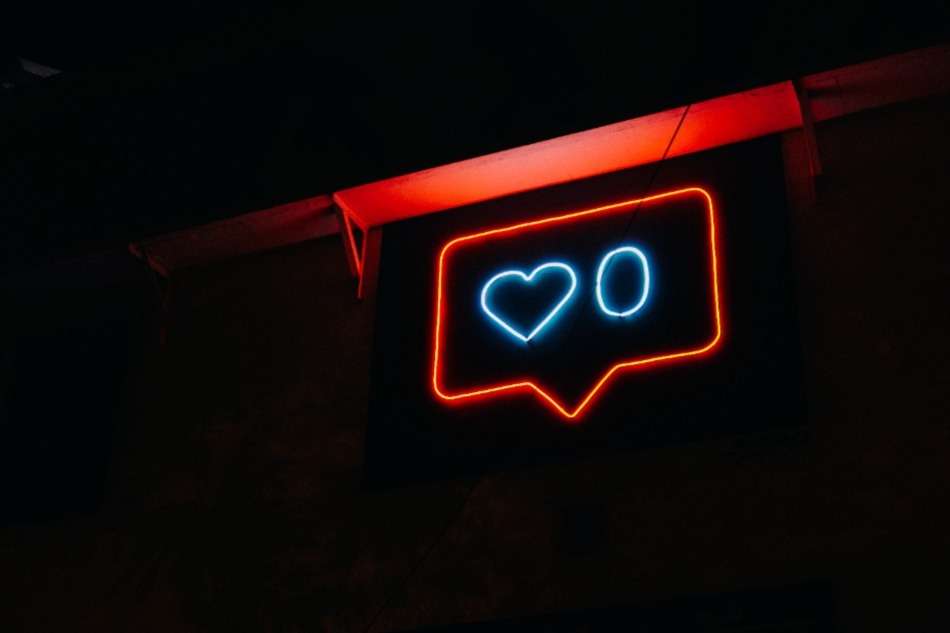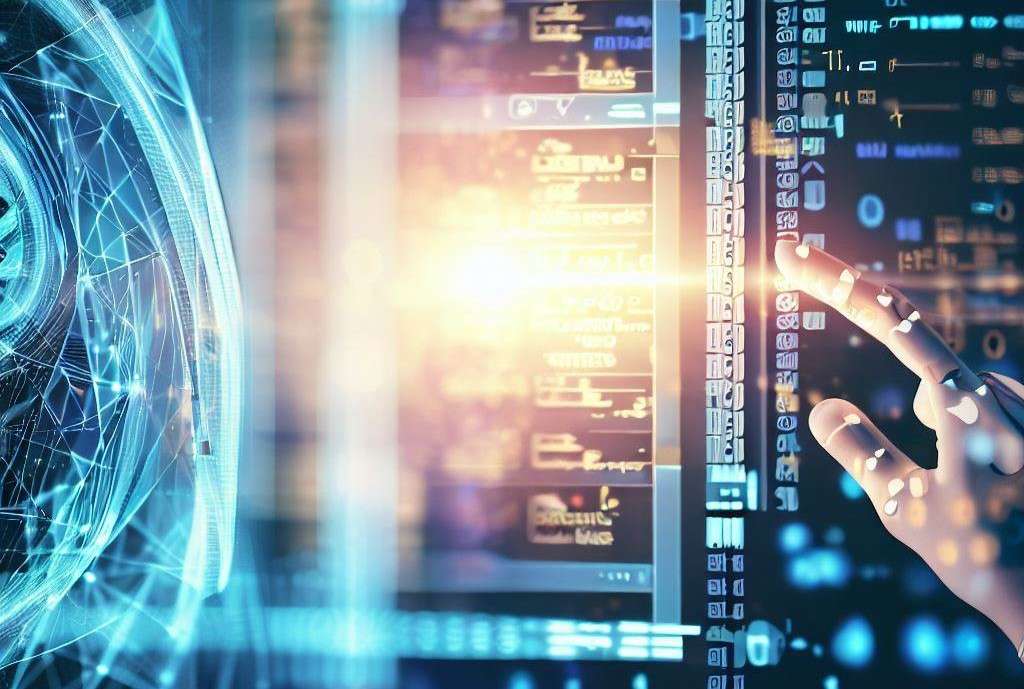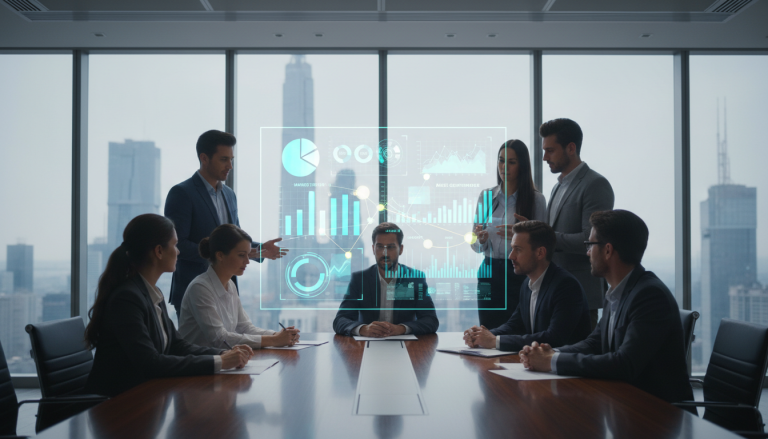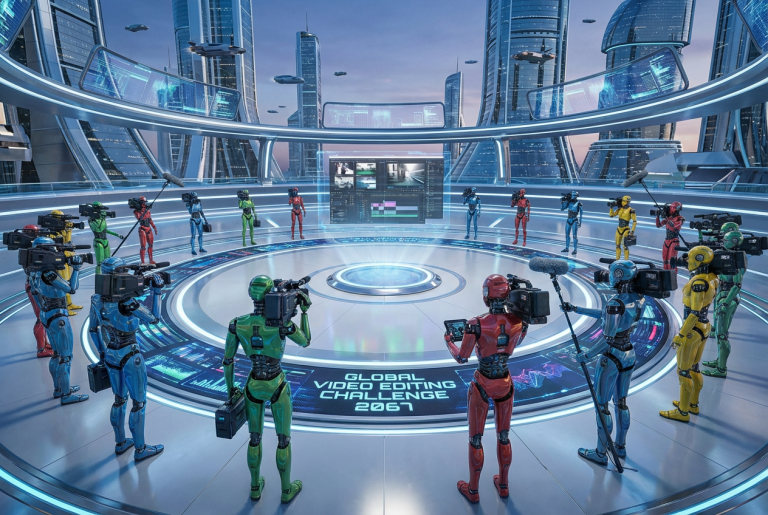Maximizing Impact: How AI Influencer Marketing is changing brands and consumers behavior

Introduction to AI Influencer Marketing- How is it changing?
Are you tired of scrolling through social media and feeling like every influencer is a carbon copy of the last? Artificial Intelligence (AI) is shaking up the influencer marketing world by helping brands identify the most unique and exciting voices to showcase their products. But that’s just the beginning. With AI, brands can also prevent influencer fraud, analyze audience demographics, and fine-tune their campaigns for maximum ROI. Buckle up and get ready to see how AI is transforming the game of influencer marketing.
Revolutionizing Influencer Marketing: Impact of AI
Artificial intelligence in marketing is a rapidly evolving field with immense potential. It has transformed the way businesses approach customer engagement, data analysis, and campaign management. By leveraging AI-powered tools and techniques, marketers can gain deeper insights into consumer behavior, preferences, and purchase patterns. As the adoption of AI continues to grow, marketers who embrace this technology will gain a significant competitive advantage in the market.
According to a report by MarketsandMarkets, the global influencer marketing industry is anticipated to grow from $6 billion in 2020 to $13.8 billion in 2024, at a CAGR of 15.1% during this period.
With AI-powered tools, brands can accurately predict an influencer’s audience size, niche, and the best outbound approach. These insights eliminate the need for manual sampling and increase accuracy.
By providing actionable insights, brands can design a personalized plan that aligns with their marketing objectives. AI creates an enduring relationship between the influencer, the brand, and the audience, generating a natural organic impact.
The future of influencer marketing relies heavily on AI-driven insights and automation. Brands that overlook AI risk failing to remain competitive.
The Power of AI in Influencer Marketing
Influencer marketing is a successful approach to promote brands and campaigns. Collaborating with social media individuals who have a large following creates authenticity and trust, leading to increased engagement rates and sales.
AI tools like Natural Language Processing (NLP) allow marketers to identify authentic influencers and create personalized messaging that resonates with their audience. AI-powered platforms optimize campaign strategies by selecting the most effective influencers and enable real-time monitoring of campaign metrics. AI can also help weed out fraudulent accounts’ influence by analyzing follower demographics and behavioral patterns.
Challenges of Influencer Marketing
Influencer marketing poses challenges for marketers, such as finding appropriate influencers and aligning their interests with brands, which can lead to inefficient advertising and poor audience engagement. Additionally, measuring the ROI of influencer marketing campaigns can be difficult, resulting in a lack of trust in the process.
However, businesses are utilizing AI solutions to overcome these challenges. AI technology aids in selecting relevant influencers through data analysis and machine learning algorithms that identify appropriate content creators. Furthermore, machine learning enables businesses to track real-time analytics, monitor performance metrics, and determine campaign success rates.
AI-powered influencer identification provides more targeted outreach opportunities, allowing marketers to focus on making different content types that suit trending topics or inform audiences on niche issues exclusive only to specific regions. This enhances audience engagement and ultimately improves the ROI of influencer marketing campaigns.
Pro Tip: To jump-start your AI-driven influencer marketing campaign, start with clearly identifying your goals and metrics before relying on predictive analytics tools.
Finding solutions to the challenges by leveraging the power of AI

AI offers solutions to the challenges faced by influencer marketing, which can be broadly categorized into influencer selection, content optimization, and performance measurement. With the help of AI, businesses can analyze large sets of data to identify relevant influencers, streamline their selection and payment, and predict campaign performance.
AI-powered systems also enable micro-targeting of customers and sentiment analysis to ensure a positive brand image. However, ethical considerations must be taken into account, such as data privacy and responsible use of information.
In addition to solving selection and content optimization challenges, AI also enhances customer trust and brand safety. By closely matching the influencer’s audience with the brand’s target audience, businesses can build trust and authority with their customers.
AI systems can also screen influencer content for inappropriate material, helping brands protect their reputation. However, it is important for marketers to ensure that data privacy and ethical concerns are addressed. Brands must prioritize the protection and responsible use of data to maintain customer trust.
Fighting Influencer Marketing Fraud with AI: How Technology is Strengthening Trust and Transparency
The use of AI technology in influencer marketing has helped to prevent deceptive practices such as influencer fraud. Semantic NLP algorithms are used to detect and eliminate fake followers, likes, and comments, increasing the legitimacy of influencer marketing campaigns. The system can also recognize suspicious activity that could indicate fraudulent behavior by influencers, such as repetitive engagements or follower-buying practices.
Furthermore, AI can analyze consumer data across multiple channels simultaneously, alerting brands about potential risks involved in partnering with fraudulent influencers. By preventing influencer fraud, companies can avoid damaging their reputation and financial losses from ineffective marketing campaigns.
How AI-Powered Tools Provide In-Depth Insights for a Winning Influencer Marketing Strategy
AI-powered tools are revolutionizing influencer marketing by conducting in-depth analyses of influencer audiences. These tools use machine learning algorithms to scrutinize the demographics, interests, and behaviors of an influencer’s audience to determine its relevance for a particular campaign. By leveraging these data-driven insights, businesses can make informed decisions when selecting influencers to partner with, based on shared values or interests that align with their brand image.
It is important for businesses to recognize the value of AI analytics in understanding consumer behavior patterns, which human analysts would not be able to achieve.
How Virtual Influencers are Disrupting the AI Influencer Marketing Landscape

Artificial Intelligence has brought about a new trend in influencer marketing – virtual influencers. Unlike traditional influencers, these are completely digital and exist only on social media platforms. Brands can create a virtual persona that aligns with their values and image. However, it’s important to ensure that the virtual influencer is well-designed and authentic in interactions with followers. When considering virtual influencers for campaigns, it’s crucial to ensure that their personality aligns with the brand’s image and values. Authentic engagement with followers can encourage them to share the brand message through various online channels.
AI influencer marketing platforms provide businesses with a range of features and functionalities that automate various aspects of the influencer marketing process.
Brands and Influencers: A match made by Artificial Intelligence
AI is changing the way companies match content with influencers by providing insights on creating tailored content. This technique is called “Content Matching for Influencers.” AI analyzes an influencer’s audience demographics and preferences to determine the best content to use. Automated content comparisons enable brands to find the influencers who best match their brand identity. AI algorithms also analyze previous content performance data, allowing marketers to predict which type of content will have a better impact on the targeted audience.
Natural Language Processing (NLP) is applied to study an influencer’s language, tone, style, and values by scanning followers’ comments and feedback. Influencers can also use AI-assisted tools to tailor their content to known audience preferences. Using AI-based methods not only enhances efficiency but also promotes transparency in influencer marketing campaigns.
Companies spending more on influencer marketing are turning towards Content Matching techniques through AI automation rather than traditional manual searching. Forbes research suggests Content Matching for Influencers is widely adopted due to its potential to maximize ROI on sponsored posts at a digital scale.
Artificial intelligence (AI) is transforming the way influencer compensation and incentives are negotiated in influencer marketing. Here are five ways AI is helping to improve the process:
- AI-powered tools analyze an influencer’s engagement with their audience to determine fair compensation.
- AI algorithms identify influencers with higher engagement rates, allowing for better budget allocation.
- AI platforms provide insights into how much other brands pay similar influencers as a benchmark for negotiations.
- AI-enabled chatbots allow for anonymous payment negotiations to avoid discrepancies or misunderstandings.
- Big data management and analysis provide actionable insights for modifying incentive structures and developing customized compensation packages.
As new technologies emerge, there will be new opportunities for influencer payment development. One emerging idea is blockchain-based platforms that automate payments in real-time when certain campaign milestones are reached, streamlining payment services without third-party intervention. With further improvements and innovation, the industry will continue to evolve.
Predicting Success: How AI Influencer Marketing offering deep insights into performance analysis

With the help of Artificial Intelligence (AI), it is now possible to anticipate the future performance of influencers. By analyzing their past behavior, AI can predict how successful they will be in engaging their audience and driving sales through their social media posts.
These predictions are based on various factors like engagement rate, followers’ demographics, brand suitability, and influencer credibility. Also, sentiment analysis helps to evaluate the tone and emotions expressed in past posts that can indicate how users reacted to them.
Implementing AI tools for predictive analytics is a game-changer in Influencer Marketing as it enables brands to predict an influencer’s effectiveness before dedicating resources. Therefore, brands are adjusting their campaigns based on data-driven insights provided by AI-powered tools.
Pro Tip: Brands should invest in AI-enabled Predictive Analytics platforms that leverage data science techniques for precise targeting and better ROI
Achieving Maximum Productivity with AI-Enabled Multitasking
The technology has made it easier to manage multiple AI influencer marketing campaigns simultaneously. Augmented realities help execute tasks with precision and promptness while integrating data from various sources facilitates seamless multitasking among diverse campaigns.
AI tools keep track of the performances of each campaign running concurrently by analyzing valuable input and specified demographics.
To optimize this feature, scheduling campaigns based on allotted time slots can ensure maximum productivity. An apt dashboard can help access all relevant data in one place, and prioritizing campaigns based on their respective deadlines is crucial.
Keeping a keen eye on metrics such as impressions, view counts, and growth rate can help achieve influencer marketing objectives without letting any effort go overlooked.
The Evolving Role of AI in Influencer Marketing Disclosures
In the world of influencer marketing, transparency is key. With the rise of sponsored content, it’s crucial for influencers to disclose their partnerships and for brands to ensure that their content is authentic. Thanks to AI-powered tools, influencers can now disclose their sponsored posts in a more accurate and efficient way. By leveraging machine learning, influencers can make sure that their audience is aware of sponsored content without interrupting their content consumption experience.
Moreover, AI is revolutionizing how brands and influencers determine compensation. Metrics such as engagement rates and authenticity are now taken into account, ensuring a fair exchange of value. Another benefit of AI influencer marketing is the ability to detect fake followers or engagements, preventing fraud and increasing transparency. This technology also helps influencers select partnerships that align with their personal values and target audience, leading to more authentic content and better results.
Interestingly, the Federal Trade Commission (FTC) has had guidelines in place for endorsements since 2009, well before social media became popular. However, the surge of social media platforms has prompted regulators to re-evaluate these laws in light of new technologies and content creation methods.
Here are six essential points about AI-powered influencer marketing platforms:
- AI-powered influencer discovery and selection tools help brands identify and analyze influencers based on their audience demographics, engagement rates, and content quality.
- AI-powered influencer relationship management tools enable brands to streamline communication with influencers, manage campaigns effectively, and measure ROI.
- AI-powered content creation tools assist brands in developing compelling and personalized content that resonates with their target audience.
- Analytics tools provide businesses with real-time insights into their campaigns, helping them optimize their influencer marketing strategies for maximum effectiveness.
- Fraud detection and prevention tools help businesses identify fake and fraudulent influencers and prevent them from diluting their brand’s reputation.
- Forecasting tools provide businesses with predictive insights into the potential ROI of their AI influencer marketing campaigns, helping them better allocate their resources.
Conclusion
Artificial Intelligence (AI) is rapidly transforming influencer marketing by providing advanced tools for content analysis, audience targeting, and campaign optimization. As a result, brands are achieving higher engagement rates and conversions than ever before.
Through this article, we have examined how AI is revolutionizing the influencer marketing landscape. We have explored how AI-powered tools are helping brands to identify the most relevant influencers for their target audience, analyze consumer sentiments, and optimize campaign performance. By utilizing AI, brands can enhance their influencer marketing strategies by reaching broader and more precise audiences, converting leads into customers, and maximizing ROI.
To leverage the full potential of AI in influencer marketing, brands must keep a close eye on emerging trends and technologies and be willing to adapt their strategies accordingly. With this in mind, brands that fail to embrace AI in influencer marketing will risk falling behind the competition. It’s time to harness the power of AI to stay ahead of the game.
If you want to learn more about latest trends in artificial intelligence, stay updated with the latest AI powered tools or discover new AI Marketing strategies and automation tactics, follow our blog or LinkedIn for regular insightful updates in this amazing technology space.
FAQs about How Artificial Intelligence (Ai) Is Changing Influencer Marketing
Q: How is artificial intelligence changing influencer marketing?
A: Artificial intelligence is revolutionizing the influencer marketing industry by providing marketers with advanced tools to identify and analyze relevant influencers and their audiences. AI-powered analytics tools also allow brands to track the performance of influencer campaigns and measure their impact on a multitude of key performance indicators.
Q: What benefits do AI influencer marketing tools offer?
A: AI influencer marketing tools offer many benefits to brands and marketers, including more accurate influencer identification, increased ROI, improved campaign targeting, more effective audience analysis, and streamlined campaign management processes.
Q: How does AI help identify relevant influencers for a campaign?
A: AI-powered influencer identification tools work by analyzing vast amounts of data from social media platforms to identify influencers who meet the specific profile of a brand’s target audience. These tools take into account factors such as an influencer’s reach, engagement rates, and relevance to a brand’s niche.
Q. How can AI enhance the targeting of influencer campaigns?
A: AI can enhance the targeting of influencer campaigns by analyzing large datasets to identify the key audience segments for a brand. This allows marketers to identify relevant influencers who have the greatest reach and influence over those specific segments. This approach ensures that campaigns are more narrowly targeted, resulting in more effective and higher ROI.
Q: Can AI help with campaign management?
A: Yes, AI-powered campaign management tools can automate various aspects of influencer campaigns, such as outreach, contracting, and content review and approval. This allows marketers to focus on strategic planning and creative direction, while the AI handles the more mundane tasks, resulting in greater efficiency and time savings.
Q: Will AI replace human influencers?
A: No, AI will not replace human influencers. While AI can help identify and analyze influencers, it cannot replace the human element of authentic storytelling and building relationships with audiences. The most successful influencer marketing campaigns will always rely on a combination of AI-powered analytics and human creativity and expertise.




